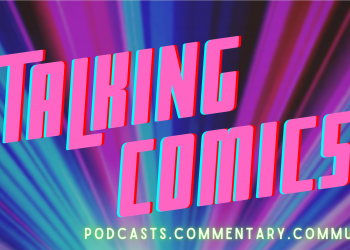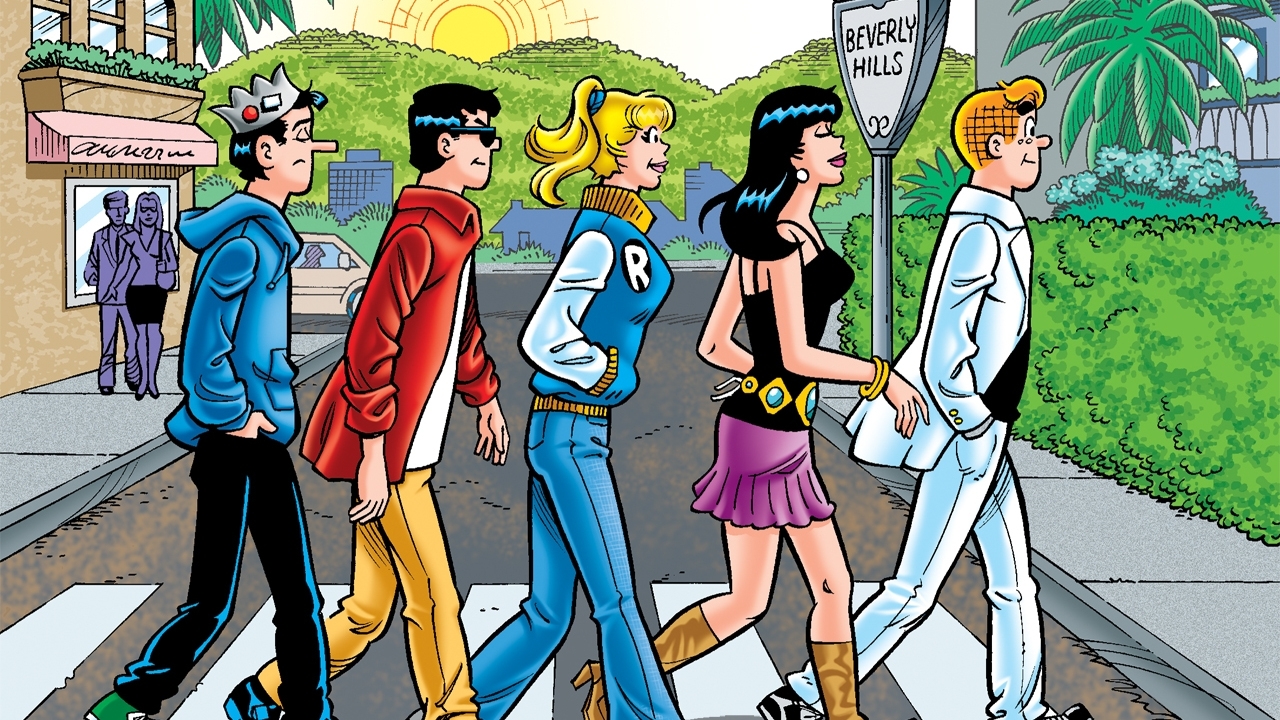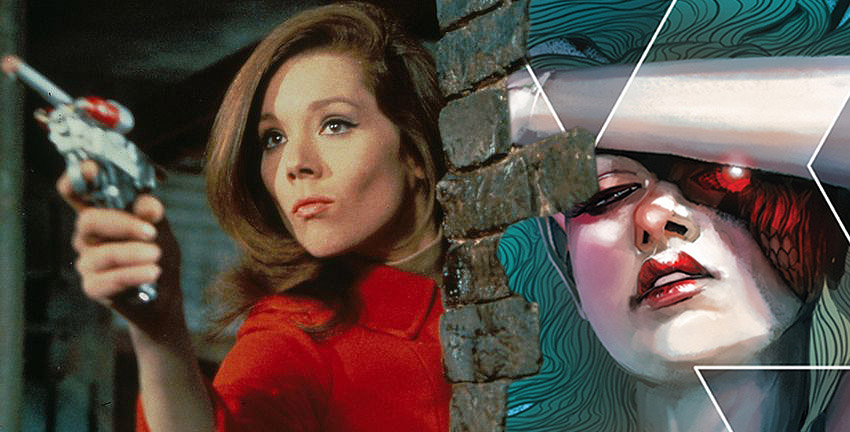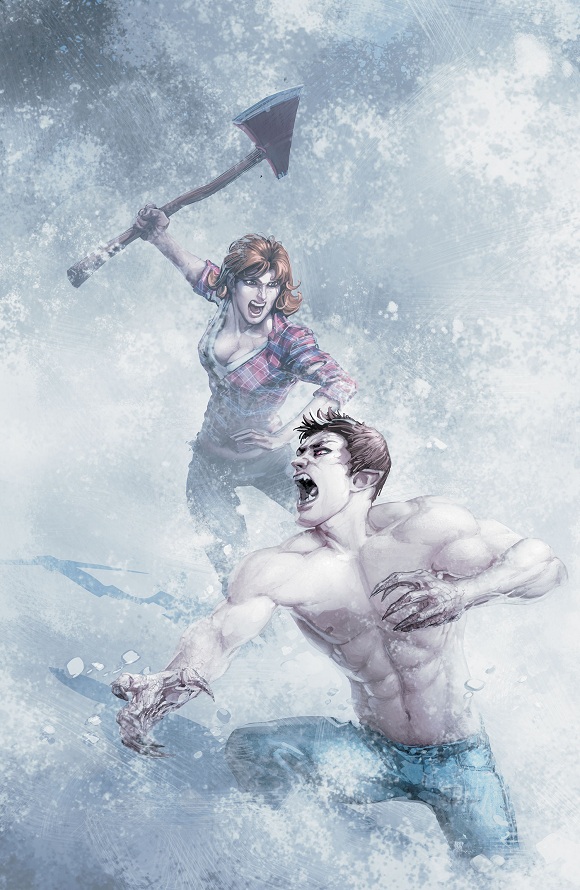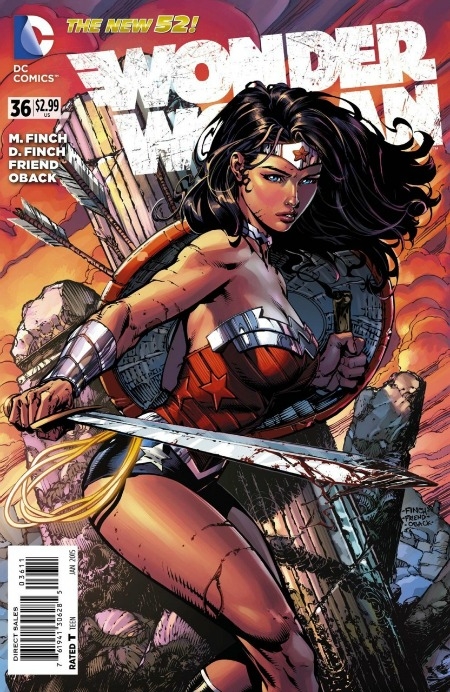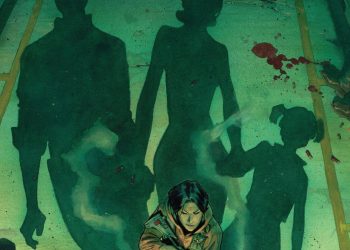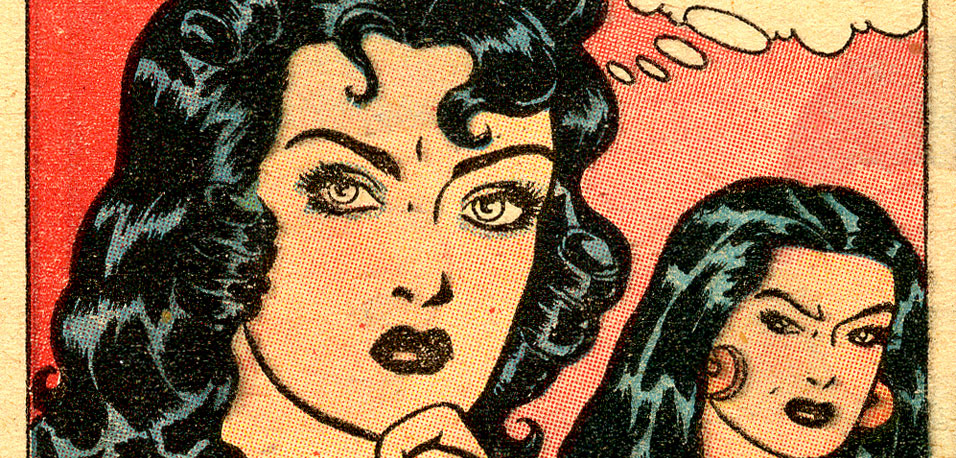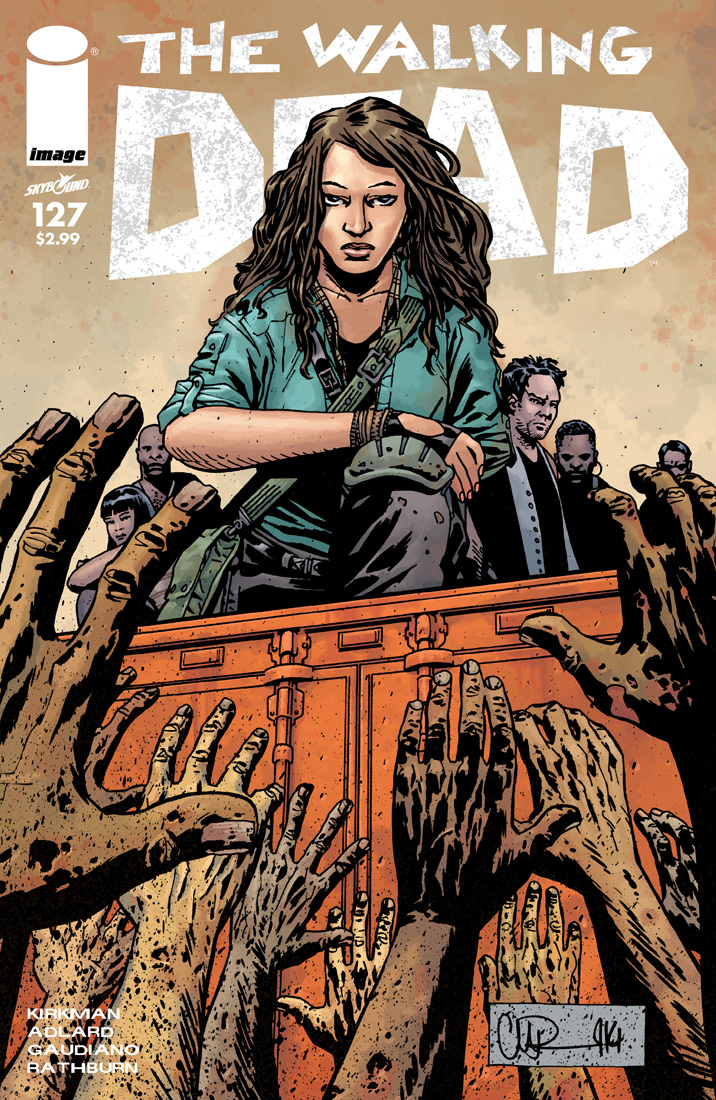PROFESSOR MARSTON & THE WONDER WOMEN
Distributed by Anapurna Pictues
Written and Directed by Angela Robinson
Starring Luke Evans, Rebecca Hall, and Bella Heathcote 
A film review by Bob Reyer
As many of you in the Talking Comics community know, I’ve been up-and-down on this film since first hearing about it. Each bit of news, the release of a teaser or trailer, and especially the press round-table that I attended at NYCC have all either confirmed my fears regarding verisimilitude or raised my hopes that Professor Marston & the Wonder Women would be a definitive portrait of the origins of comics’ greatest heroine and the amazing people who created her.
Well, friends, I don’t want to bury the lead, so here’s the thing; my thumbnail would be that this is a well-directed, well-acted, mostly conventional Hollywood biopic about some unconventional people. It’s a good film in a general sense, but it’s also a very suspect history lesson.
Professor Marston & the Wonder Women is certainly what they call in the trades a “prestige picture”, and the performances by Luke Evans, Rebecca Hall, and Bella Heathcote (as William Moulton Marston, Elizabeth Holloway Marston, and Olive Byrne respectively) are excellent and well-deserving of that nomenclature. Writer/director Angela Robinson has created an interesting framework for the story, as Dr. Marston is embroiled in a contentious 1945 review meeting with DC Comics Adviser Josette Frank which then generates flashbacks to related past events, and her design crew has done a fine job as well in capturing the period lushly and correctly. Wouldst that the same fastidiousness had been applied to the details and reasoning behind the creation of Wonder Woman, and more importantly, to the lives portrayed here-in.
During the press event, I was encouraged to hear about the amount of research done by all involved, and so refrained from asking a question that was uppermost in my mind, which was the purported lack of contact with the Marston Family regarding this film. At the open panel discussion later in the day, Dr. Travis Langley, co-editor with our own Dr. Mara Wood of “Wonder Woman Psychology: Lassoing the Truth” posed this same cogent query about the source for some of the more intimate details of the relationship between the film’s protagonists, the particulars of which seemed somewhat at odds with other reports, including my own brief conversations with Christie Marston, William and Elizabeth Marston’s grand-daughter. In fact, Ms. Marston has posted this on her Twitter feed:
“This film is not a true statement. It is based on someone’s imagination, and is not in any way related to my family. We completely reject any claims made in the film and in no way support this work of fiction. (and btw, the true story is much more interesting…)
So, while at some level I have to celebrate that Ms. Robinson brought this tale to the screen, the film far too often diminishes many aspects of what made the creation and creators of Wonder Woman special in favor of other, more tantalizing elements that may-or-may-not be an accurate account of the relationships between the three protagonists. That said, even as presented on-screen that relationship had an impact. After the film ended, I chatted with three young women sitting near to me, and they related how they had tears in their eyes as a reaction to the revelation that Elizabeth and Olive stayed together for nearly forty years after William’s death, and how for them the movie was non-judgmental in that regard. While I could certainly agree with that, in our conversation I mentioned that whilst that angle of the story was without question, many others, particularly in regards to any BDSM component to their tripartite relationship, were guesses at best.
I brought out some of the things that you’ve heard me espouse on-air, such as the fact that after Dr. Marston’s death, Elizabeth and Olive (along with writer Joye Murchison) petitioned DC to allow them to personally oversee the continuation of Wonder Woman (DC rejected that idea, sadly, in favor of having Robert Kanigher strip the book of all its feminist underpinnings), and that the film oddly down-played how radically forward-thinking Dr. and Mrs. Marston’s motives for bringing Wonder Woman to life were back in 1941, far beyond a need for them to pay the bills. The ladies (and two gentlemen behind me listening to my ravings!) were intrigued, and they expressed profound interest in knowing more of the “real story” beyond what was told here.
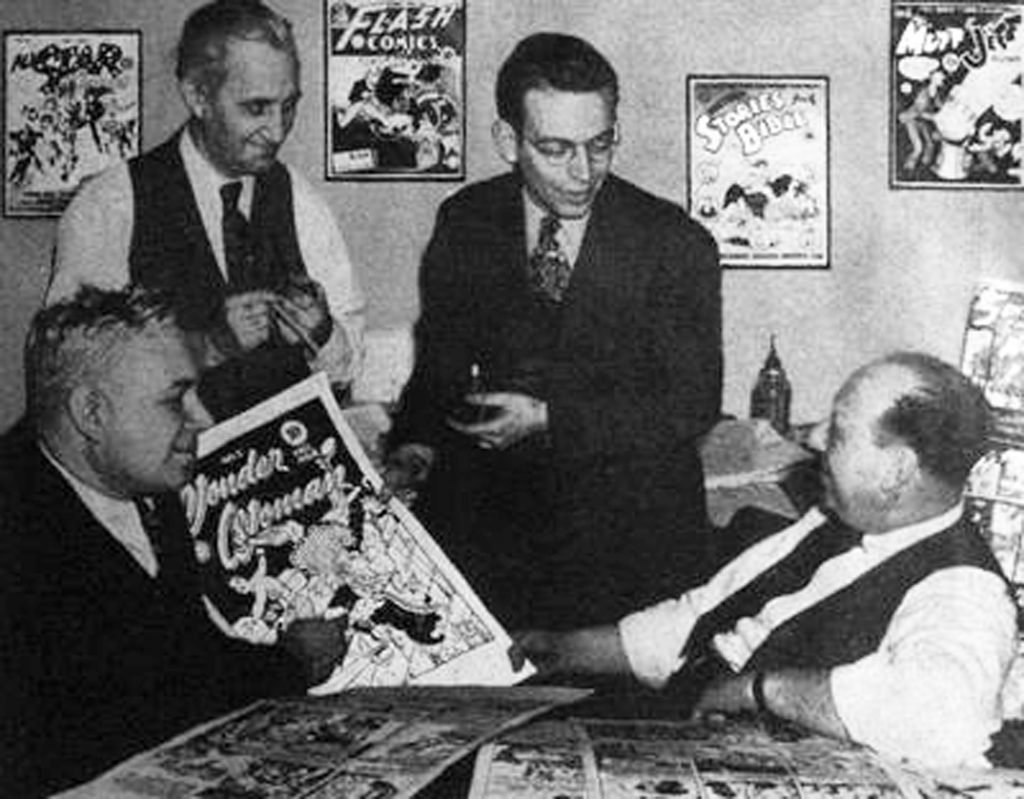
It’s difficult to be confident in the extrapolatory nature of the depiction of the lives of the lead characters when the film is beset with a laundry list of errors of commission and omission on the comic book side of things. I won’t run them all down here, but replacing All-American Comics editor Sheldon Mayer with Max Gaines as the person who officially names her “Wonder Woman” is a glaring oversight, as is neglecting to mention the part played by artist Harry G. Peter in her creation, particularly in that he was the co-designer of her iconic look, as seen below in this original concept art:
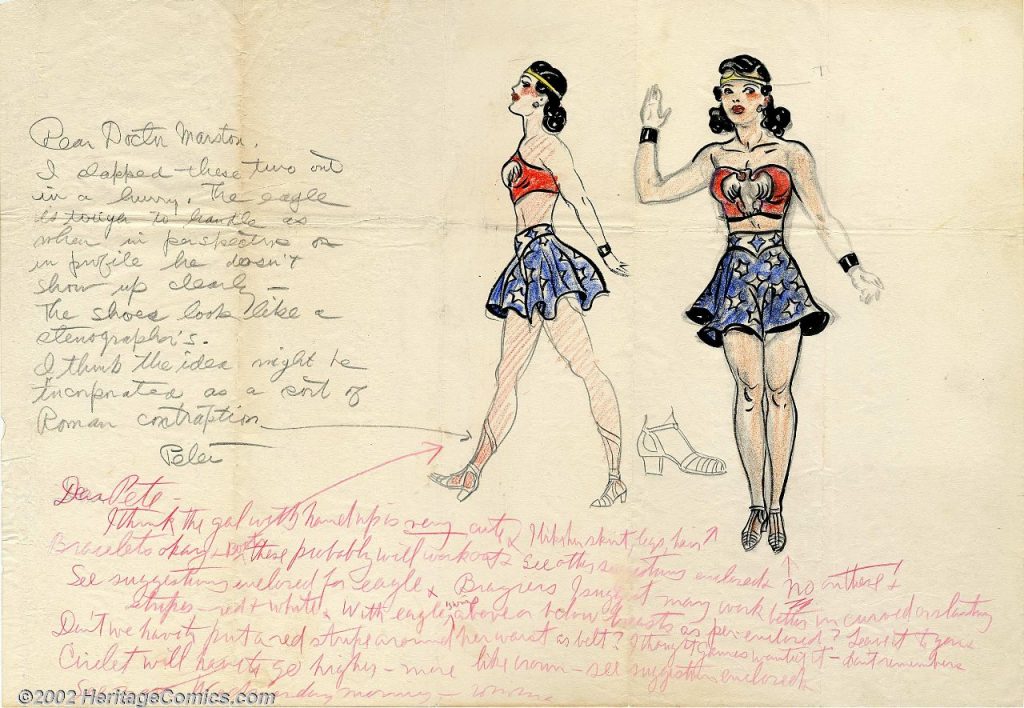
To conclude, as an evening’s entertainment, Professor Marston & the Wonder Women is a sumptuous, sensual film that is sadly so rife with supposition that even though it has many positive elements, as one who has done more-than a bit of reading and writing on the subject of Wonder Woman, I find it impossible to recommend to anyone searching for the “true story” that a title card states the film is based on.


